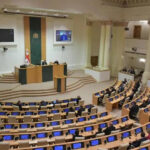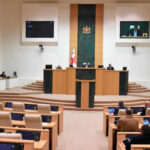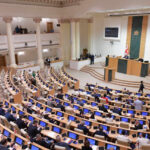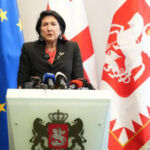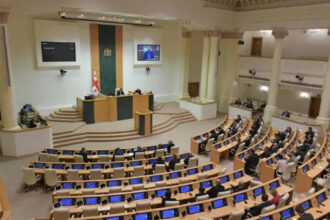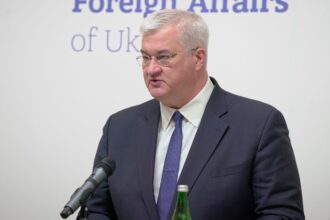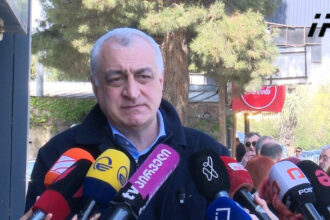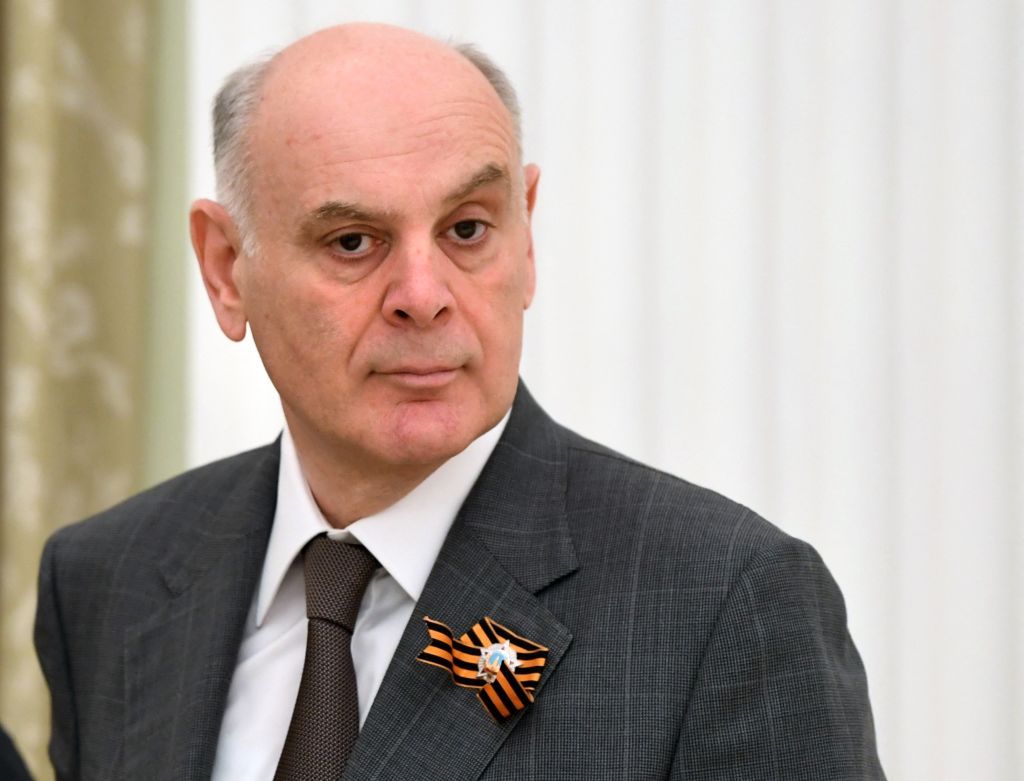**Russian Grip on Occupied Abkhazia Remains Strong**
A memorial dedicated to Russian soldiers after the 1992-1993 Abkazia-Georgia War stands in Sukhumi, occupied Abkhazia. (Tyson Paul/Loop Images/Universal Images Group via Getty Images)
In a breakaway Georgian region of Abkhazia, local council members recently gathered to discuss new measures promoting Russian investment. However, the proposed legislation was met with strong protests.
**Tensions Rise in Abkhazia**
On November 19, protesters blocked bridges around the Abkhazian capital of Sukhumi. By November 22, the crowd had descended on Abkhazia’s parliament building. Protesters smashed through the gates with a truck and stormed the compound as police officers fired tear gas. At least 14 people were injured.
The region’s de facto president, Aslan Bzhania, resigned days later. The investment bill was shelved.
**Kremlin’s Grip Remains Strong**
Despite the protests, the Kremlin’s grip on occupied Abkhazia remains strong. Russian businesses have been taking an increasing interest in investing in places like Abkhazia as sanctions bar them from investing elsewhere.
“Previously, Russian companies wouldn’t want to invest in (occupied territories like) Abkhazia so as not to spoil their relations with Western partners,” says Vartanyan. “After being sanctioned, that doesn’t matter anymore.”
The Kremlin’s ultimate trump card is its control of the occupied region’s political survivability. It is unlikely that officials in Sukhumi can outrun Moscow’s demands indefinitely.
“If Russia is financing Abkhazia, they will be asking for something in return,” says Sieniawski. “Now, maybe this particular investment bill was not so high on Russia’s political agenda, but these demands will be back again sooner or later.”
**No Change in Power Balance**
The prospect of power change and early elections in Abkhazia does not change the power balance – nor the larger geopolitical picture that matters so much to the Kremlin. While protesters may not have wanted to welcome Russian neighbors, they also weren’t pushing to change the status quo.
As long as the larger picture remains stable, Moscow can simply adjust the details of the deal with whoever becomes Sukhumi’s next de facto leader.
“In real terms, for Russia, nothing changes,” says Vartanyan. “They are still a dominant player. They are still expected to pay local salaries.”
